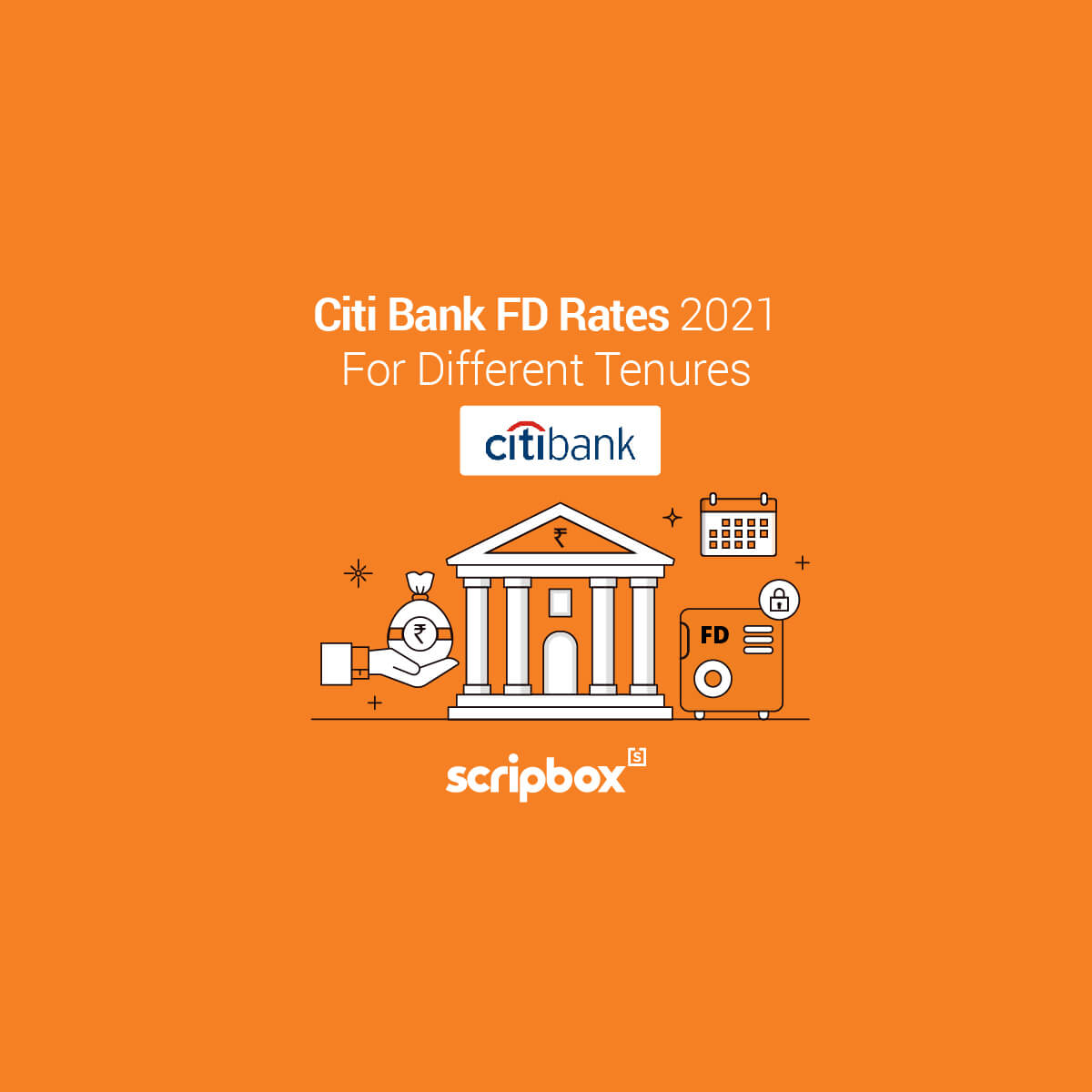10 Different Types of Bank Accounts in India
Indian banks offer multiple types of accounts for different purposes. Whether one is working, or a student, an entrepreneur, a partnership firm, or an NRI, each one has several options to choose from. Bank accounts vary based on purpose, frequency of transactions, and even location. The different types of bank accounts offered by Indian banks are savings account, current account, salary account, and NRI accounts. This article covers the different types of bank accounts in India in detail.
1. Savings Bank Account
This is the most common type of bank account. One can open a savings account individually or jointly by two individuals for the purpose of saving money. By depositing money in a savings account, one can earn interest. Following are the features and benefits of a savings account:
- The savings account pays interest in the range of 2.5% – 6% per annum to its depositors. Check SBI savings account interest rates.
- There is no restriction on the number of times one can deposit money. Hence savings bank accounts are highly liquid. However, there are daily limits on the number of times and amount of withdrawal.
- The minimum balance requirement is different for different banks. Most of the banks allow zero balance accounts.
- Savings account holders receive debit cards, ATM cards, cheque books, and passbooks for ease of transactions. Moreover, they can also access their funds through internet banking and mobile banking. This also makes fund transfers easy and quick.
- Depositors can set up auto-debits to pay bills and invest in mutual funds and other securities. They can also set up auto credit to receive interest and dividends.
- All resident individuals, including minors, are eligible to open a savings account in India.
2. Current Bank Account
The current account is a primary requirement for any entrepreneur or business with multiple transactions in a day. A current bank account is a zero-interest account, and it usually needs a high minimum balance requirement. Following are the features and benefits of a current account:
- There is no limit on the number of transactions that one can do from a current account. Moreover, the account facilitates more frequent transactions.
- Current accounts require a higher minimum balance requirement.
- All businesses, including partnership firms, companies, sole proprietorship firms, associations, and also trusts, can open a current account.
- Banks provide overdraft facilities on current accounts. However, the overdraft facility will operate as per the term of the banks.
- Current account holders receive cheque books, internet banking, and mobile banking facilities for smooth transactions.
- A few current accounts also facilitate foreign currency transactions.
3. Salary Account
A salary account is a type of bank account that has to be opened as per the tie-up between the bank and the employer. A salary account is an account where the company credits the salary every month. Following are the features and benefits of a salary account:
- Salary accounts pay interest on the deposit amount. The interest rate varies with the bank.
- Salary accounts do not have minimum balance requirements.
- Banks offer ATM cards, debit cards, credit cards and cheque books for salary accounts. Moreover, banks also offer internet banking and mobile banking facility for accessing funds in the account. All fund transfers, including NEFT, IMPS, and RTGS, are also offered at lower rates.
- Few banks also offer overdraft facility on salary accounts.
- Payment of bills can be easily facilitated through a salary account.
- Salary account holders also receive preferential pricing for personal loans and home loans.
4. Fixed Deposit Account
A fixed deposit is a facility that is provided by all the public and private banks in India. A fixed deposit is a very popular investment plan among investors who wish to park their surplus money for a predetermined interest rate and prefixed maturity.
- You can open a FD account either by logging in to your internet banking or by visiting the nearest branch
- Banks have made it very easy and seamless for investors to invest in a fixed deposit
- The interest rate varies on the basis of the maturity period and the type of investor (senior citizen vs other individuals). The rate of interest for a senior citizen is higher than the interest rate for other individuals by 0.50% to 1%.
- The interest rate also varies from one bank to another. You can use Scripbox’s FD calculator to calculate the estimated maturity amount.
- Banks provide tax saving fixed deposit accounts as well. The lock-in period for a tax saving fixed deposit account is 5 years.
- As the name suggests, tax saving fixed deposit accounts are eligible for a tax deduction of up to Rs 1.5 lakhs under section 80C of the Income Tax Act, 1961.
5. Recurring Deposit Account
Public and private banks in India provide recurring deposit account facility to its customers. With a RD account, an investor can deposit a fixed amount on a fixed date to his/ her account for a predetermined interest rate and maturity. Since the investment is made in installments it becomes easy for an investor to create a corpus. Moreover, the power of compounding helps earn higher returns. Use a RD calculator to find your interest and maturity amount.
- Recurring Deposit plans are designed to help people develop a habit of saving on a regular basis.
- The minimum deposit amount varies greatly from one bank to the next. You can start investing with as little as Rs. 1000.
- The minimum deposit time is six months, and the maximum deposit period is ten years.
- The interest rate is the same as that offered on a Fixed Deposit. As a result, the interest rates are higher than those offered by a savings account.
- Withdrawals made too soon are dangerous. However, depending on the bank, you may be able to close your account before the maturity date under specific circumstances.
NRI Bank Accounts: There are different bank accounts for residents and non-resident Indians. For non-resident Indians, banks offer NRI accounts. Following are different types of NRI accounts.
6. Non-Resident Ordinary (NRO) Savings Accounts
A Non-Resident Ordinary (NRO) savings account is a type of NRI account that helps in managing the income that they earn in India. The income can be in the form of interest, rent, dividend, etc. The deposits made in the account should only be in Indian currency. Following are the features and benefits of an NRO account:
- NRO account is a rupee-denominated account, and all deposits are to be made in the Indian rupee. Also, NRO accounts have a slightly higher minimum deposit requirement.
- NRIs can open the account individually or jointly along with another NRI or Indian resident.
- Funds in an NRO savings account cannot be repatriated abroad. Moreover, one cannot transfer funds from NRO to the NRE account. However, they can use the money to invest in India.
- The nomination facility is available on the NRO savings account. Moreover, the resident power of attorney can make payments from the NRO account on behalf of the NRI.
- An Indian regular savings account can be converted into an NRO account if the residential status of the account holder changes. Moreover, one can convert the account back into a regular savings account when the NRI returns back to India and changes his/her residential status.
- The interest earned on these accounts can be repatriated abroad. Also, the interest is taxable in India.
7. Non-Resident Ordinary (NRO) Fixed Deposit Accounts
One can invest in NRO fixed deposits through an NRO account. All NRIs, including Persons of Indian Origin (PIO) and Overseas Indian Citizens (OCI), can invest in NRO fixed deposits. Following are features and benefits of NRO fixed deposit accounts:
- NRIs can open the NRO fixed deposit account individually or jointly along with another NRI or Indian resident.
- NRIs can get a higher rate of interest on NRO FDs than NRO Savings accounts. The banks decide the interest rate for NRO fixed deposits. Also, the interest earned on NRO fixed deposits is credited to the NRO savings account.
- The principal amount cannot be repatriated to a foreign country. However, the interest can be repatriated to a foreign country.
- Both interest and principal amount of an NRO fixed deposit account is taxable in India.
8. Non-Resident External (NRE) Savings Accounts
Non-Resident External (NRE) Savings Account is an account for NRIs to transfer their foreign currency earnings to India. Following are the features and benefits of NRE savings account:
- NRE account allows NRIs to deposit their foreign currency earnings in India.
- NRIs can open NRE savings accounts individually or jointly with another NRI.
- This account is very liquid, and all the funds can be fully repatriated abroad.
- Any interest earned on the deposits is completely tax-free in India. However, it is taxable in the country of residence.
- Funds in the NRE Savings account can be accessed from anywhere using the internet banking facility and international debit card.
- With an NRE Savings account, one can also invest in mutual funds and other investments in India.
- Only eligible investors can open NRE accounts. NRIs, Indian citizens, residing in foreign countries for studies, employment and business, Person of Indian Origin or Overseas Citizen of India can open NRE accounts.
9. Non-Resident External (NRE) Fixed Deposit Accounts
Non-Resident External (NRE) Fixed Deposit Accounts are investment options that are available for NRIs who earn in foreign currency. The investment in NRE FDs is made in foreign currency and once invested, they are automatically converted into Indian currency. Following are the features of NRE FD accounts:
- One or more NRIs can invest in Non-Resident External (NRE) Fixed Deposit Accounts.
- The banks decide the interest on NRE FDs. Also, the interest earned is completely tax-free in India. Moreover, the interest and investment amount are fully repatriable.
- The tenure of the FD ranges from one year to 10 years.
- The minimum investment for NRE FD is slightly higher when compared to a regular FD.
- Nomination and auto-renewal facility is available on NRE FDs.
- Only eligible investors can open NRE FD accounts. NRIs, Indian citizens, residing in foreign countries for studies, employment and business, Person of Indian Origin or Overseas Citizen of India can invest in NRE FD.
10. Foreign Currency Non-Resident (FCNR) Account
Foreign Currency Non-Resident (FCNR) Account is a term deposit account that is maintained in foreign currency. One can open this account in only one of the nine currencies allowed by RBI. Following are the features and benefits of the FCNR account:
- FCNR(B) account is a term deposit account and not a savings account where NRI investors can invest money. One can also transfer funds from an NRE account to an FCNR (B) account.
- NRIs can deposit money in only one of the nine currencies. They are USD, GBP, AUD, SGD, CAD, CHF, HKD, EUR, JPY. Also, investors have to deposit money in the currency of NRIs country of residence.
- The interest rate on FCNR accounts varies with banks and currency of deposit. Also, the banks pay interest only after the completion of one year of deposit. Also, the interest earned on this account is completely tax-free in India.
- Tenure of FCNR deposits ranges from one to 5 years.
- Banks allow premature withdrawal with a penalty. Also, withdrawals can happen only in foreign currency. Moreover, banks also offer an overdraft facility on FCNR deposits. However, the terms of the loan vary for different banks.
- Interest and principal amount are fully repatriable, i.e., fully transferable to a foreign country.
READ MORE:
- Different Types of Investment Options Available in India
- 7 Different Types of SIPs
- What is Fixed Deposit Sweep-in Facility?
- Difference Between FD Nominee and Legal Heir Rights
- SBI Annuity Deposit Account
- Best Banks in India
Explore Fixed Deposit Pages
Related Articles
- 10 Different Types of Bank Accounts in India
- 1. Savings Bank Account
- 2. Current Bank Account
- 3. Salary Account
- 4. Fixed Deposit Account
- 5. Recurring Deposit Account
- 6. Non-Resident Ordinary (NRO) Savings Accounts
- 7. Non-Resident Ordinary (NRO) Fixed Deposit Accounts
- 8. Non-Resident External (NRE) Savings Accounts
- 9. Non-Resident External (NRE) Fixed Deposit Accounts
- 10. Foreign Currency Non-Resident (FCNR) Account
























Show comments